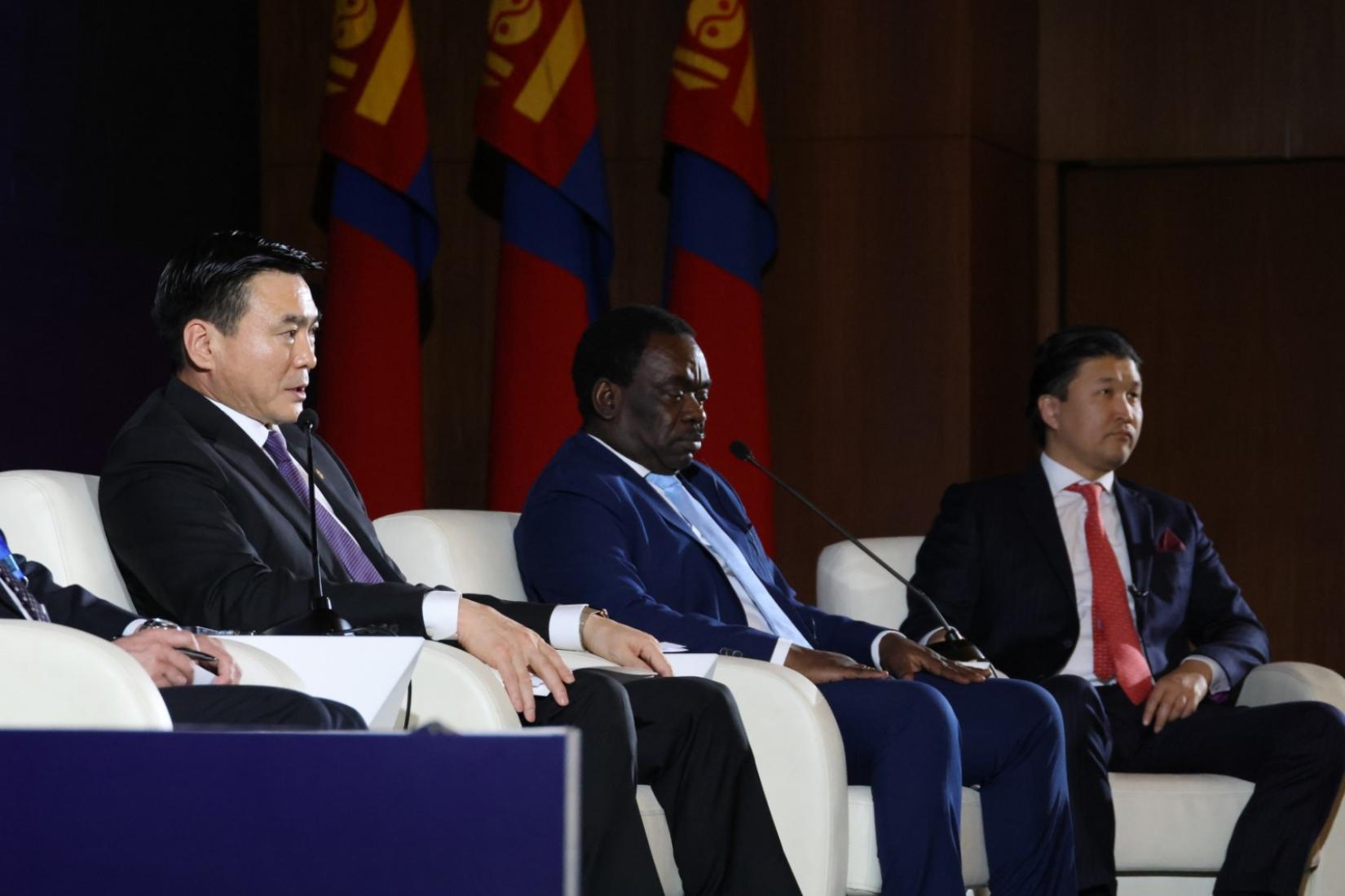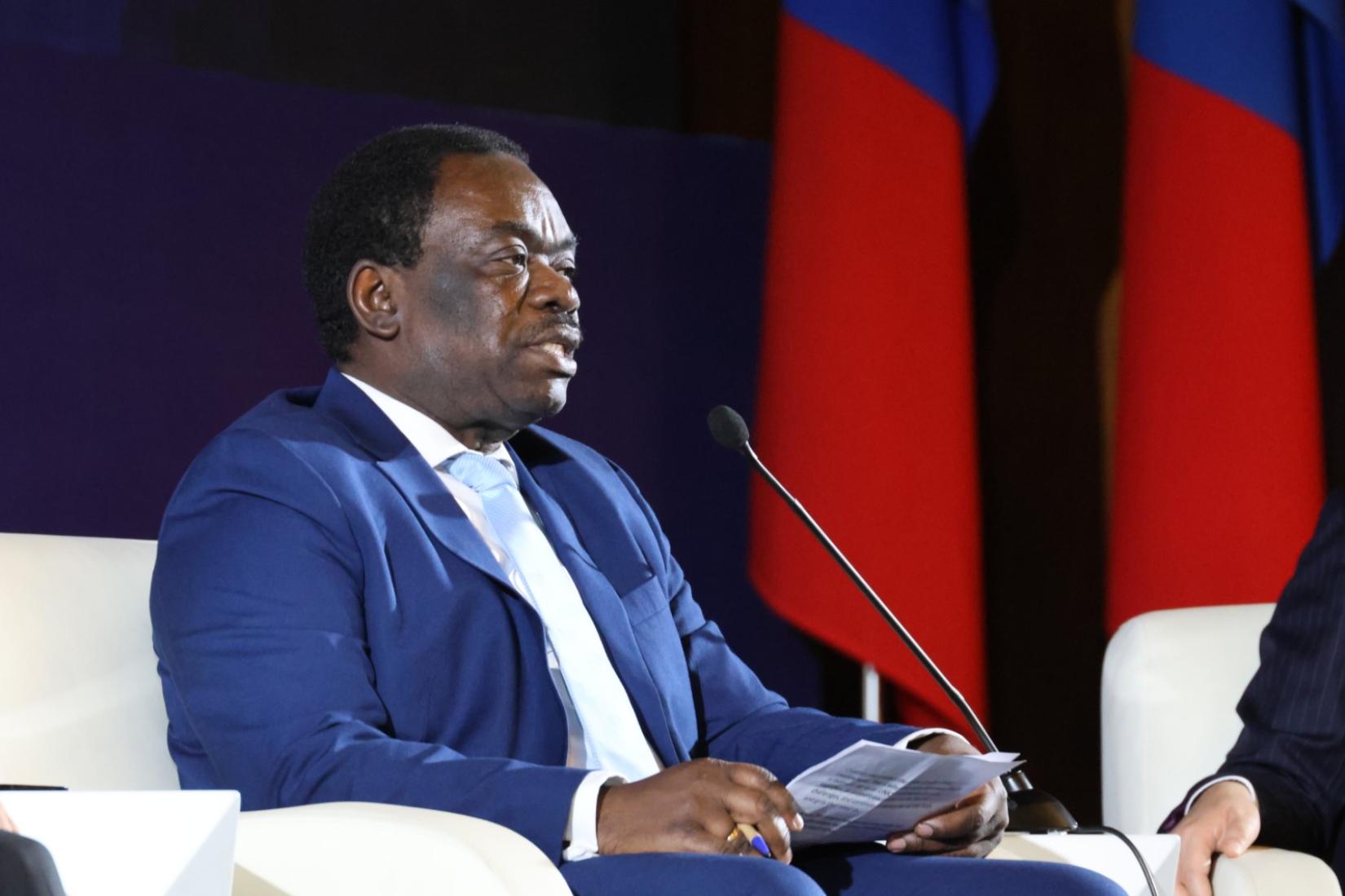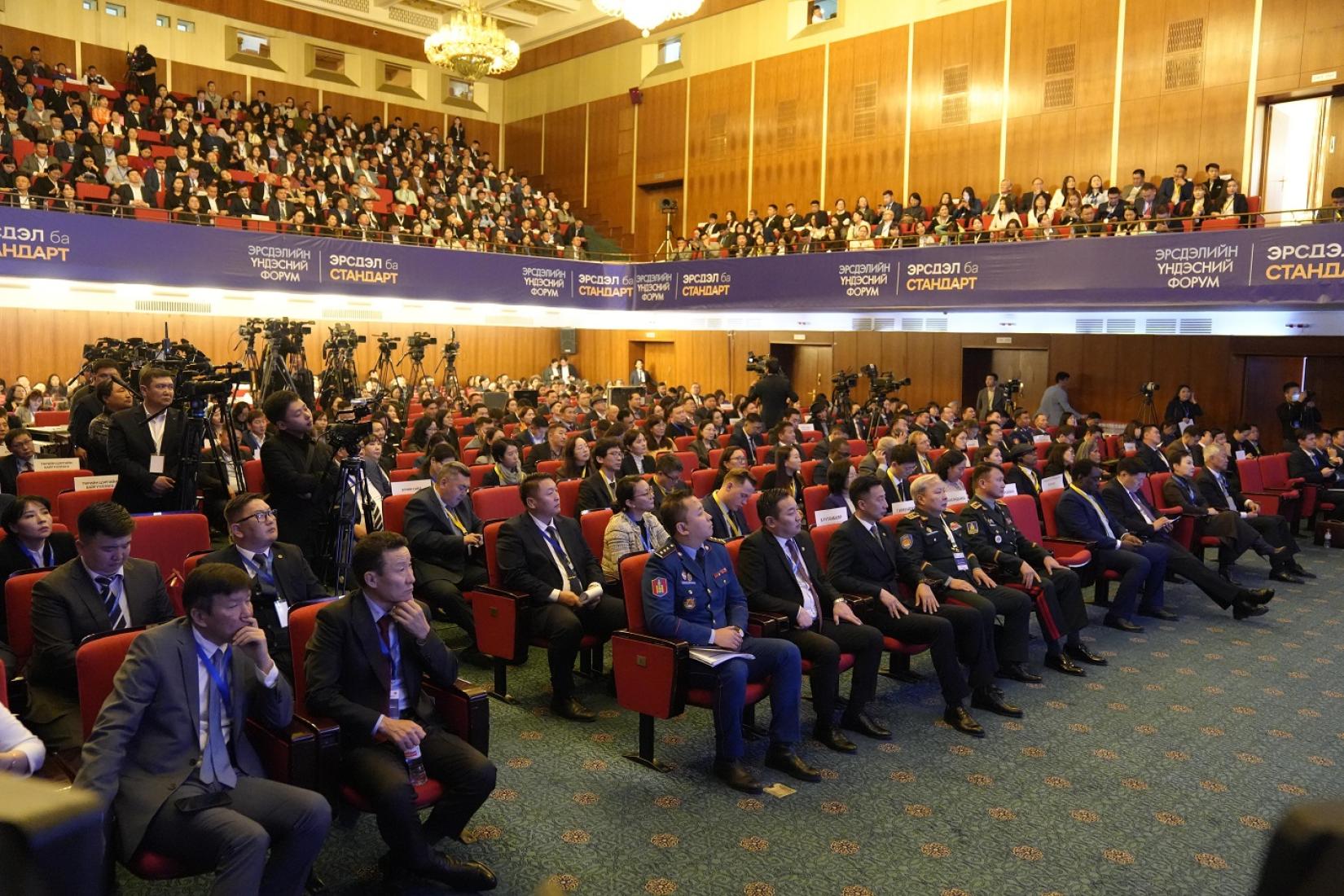National Forum on Risk and Standards for Sustainable Development
21 November 2023
Ulaanbaatar, November 20, 2023 – Today, under the auspices of Deputy Prime Minister S. Amarsaikhan, Mongolia convened the National Forum on Risk and Standards for Sustainable Development, attracting over 1500 participants. The primary focus of the gathering was to underscore the nation's dedication to adhering to standards for achieving risk reduction and minimizing the impacts of disasters on both people and the environment.

In his opening address, President Khurelsukh Ukhnaa emphasized that disaster risk reduction and building resilience stand as key national development priorities. The Deputy Prime Minister echoed these sentiments, stressing the vital role of adhering to standards in effective risk management. He underscored that the absence of standards creates an environment conducive to disasters and threats, potentially hindering progress and development.
Mongolia has witnessed a surge in hazardous events and incidents, particularly in climate-related phenomena, which have increased 2.9 times since 2015. Notably, the number of climate change-related natural disasters has tripled since 1990, with dzud being one of the prominent examples. Over the past 80 years, Mongolia has experienced an intensification of climate change, marked by a 2.25 degrees Celsius increase in the average air temperature – twice the global average. Approximately 77 percent, or 120 million hectares, of Mongolia's territory, is affected by desertification, with half of that classified as severely impacted.

"Realizing and managing these risks is key to achieving the Sustainable Development Goals," remarked UN Resident Coordinator a.i Evariste Kouassi-Komlan, underscoring the imperative for stronger multilateral cooperation and cross-sectoral collaboration. He highlighted that such collaboration would enhance risk management through standardization.

The National Forum, scheduled from November 20 to 22, has drawn active participation from various UN agencies. Their collective aim is to provide comprehensive and multi-sectoral support to strengthen Mongolia's national resilience to disaster risk reduction, ultimately contributing to the broader goal of achieving sustainable development.





